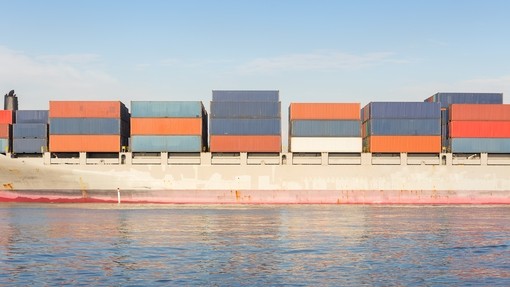A 'stunt' summarily dismissed: No binding charterparty where 'subject' not lifted and where 'all terms' not 'agreed'
Southeaster Maritime Ltd v. Trafigura Maritime Logistics Pte Ltd (The Aquafreedom) [2024] EWHC 255 (Comm)

A 'stunt' summarily dismissed: No binding charterparty where 'subject' not lifted and where 'all terms' not 'agreed'
After the decisions in The Leonidas [2020] EWHC 1986 and The Newcastle Express [2022] EWCA Civ 1555, it is clearly established that, in the context of contracts for the employment of a ship, the making of an agreement on ‘subs’ or ‘subjects’ signals that there are pre-conditions to a contract which remain outstanding. The conclusion of a binding contract will be dependent upon the agreement of the relevant party or parties to ‘lift’ (ie remove) the subjects.
In this case, the Court has found that the subjects agreed by the parties precluded the existence of a binding charterparty. The Court also found that, once an offer had been countered, it was no longer open for acceptance. The Court, therefore, granted the Owners summary judgment on the issue.
The decision provides useful guidance on the appropriate approach to charterparty ‘subjects’ and the reading of fixture negotiations.
The background facts
In early 2023, the Claimant Owners of the Vessel, managed by Unisea Shipping Ltd, and the Defendant, Trafigura, were negotiating a four-year fixture with two annual optional periods. As is usually the case, negotiations took place through brokers on multiple channels (Owners-brokers, broker-to-broker, brokers-Trafigura) and on multiple platforms (email, WhatsApp). Offers and counter-offers were exchanged against the backdrop of terms negotiated in 2021 between Trafigura and another owner within the same managed fleet as the Vessel, with the parties edging towards agreement but remaining apart on various terms.
The discussions led to a fixture recap on two subjects: ‘As per previously agreed terms sub review both sides’ (Review Sub) and ‘Charterers’ management approval latest 2 working days after all terms agreed.’ (CMA Sub).
After that recap, the Owners proposed to Trafigura a series of terms, to which Trafigura counter-proposed but the Owners then went silent. Sensing that the Owners were pulling out of the negotiations, Trafigura purported to revoke its counter-proposals and accept the Owners’ earlier terms, to which Trafigura had counter-proposed. The Owners thought this was a ‘stunt’ on the part of Trafigura, and a WhatsApp was promptly passed through the broking channel from the Owners to the brokers to Trafigura, in which the Owners said that “[they did not] want to have a disagreement on technicalities but [they did not] agree the terms and [were not] there to do the business” (Withdrawal Message). Trafigura responded by purporting to lift its CMA Sub.
The Owners’ position was that the negotiations never resulted in a concluded charterparty. Trafigura alleged that a binding charterparty had been entered into between the parties, which the Owners had repudiated. The Owners sought a declaration from the High Court that no charterparty had been concluded.
The Commercial Court decision
The Court found that Trafigura’s case had no realistic prospect of success and gave summary judgment in favour of the Owners. Its decision was based on the following principal findings:
- Fixture negotiations are to be construed according to the principles applying to the construction of concluded contracts: objectively and without reference to terms that were proposed but not agreed.
- In the context of charterparty negotiations, the starting position is that the presence of even one ‘subject’ is sufficient to prevent a contract from arising: this means that, ordinarily, while a vessel is ‘on subs’, either party is within its rights to simply walk away. Of course, each negotiation turns on its own facts, words used, and circumstances of the case (and this appears in the Court’s obiter comments about what the position could have been had the fixture been only subject to unilateral review of an agreed proforma with logical amendments). However, the English courts will be slow to depart from what they consider to be an established market understanding.
- In this case, the Review Sub and the CMA Sub had to be read together, such that the parties would have to go through the following stages before ‘subs’ could be lifted: (a) each side would review the terms that had been agreed back in 2021; then (b) the parties would agree ‘all terms’; and then (c) once ‘all terms’ had been agreed, Trafigura would have two days to lift its CMA Sub.
- Trafigura could not unilaterally accept terms which it had already rejected. Under English law, a counter-offer amounts to a rejection. A rejection ‘kills’ the offer, such that the offer stops being open for acceptance. Practically, this means that, once a party has rejected an offer, it cannot then change its mind and unilaterally accept it. In other words, once Trafigura had counter-offered on terms, the Owners’ offer stopped being open for acceptance. The most Trafigura could do was make a fresh offer but the Owners had made it clear that they were not there to consider it.
- In any event, the effect of the Withdrawal Message was that the Owners had revoked any offer they might have previously made. Trafigura sought to argue that WhatsApp communications were informal and of lesser importance than email correspondence, but the Court found that this argument was fanciful and had no real prospect of success. The Court noted that WhatsApp messaging in this case was used to convey contractual information and the communications were generally businesslike.
- Costs were awarded in the Owners’ favour at circa 94% of the costs they incurred in the High Court proceedings.
It is no longer open to the Defendant to seek permission to appeal the Commercial Court decision.
Key takeaways
- Where the parties have used market standard wording which negates contractual intention, the English courts will not hesitate to determine the matter summarily, sparing both sides the costs and effort of a full-blown trial.
- The general position under English law is that ‘subjects’ in fixture negotiations must be lifted before there is a binding contract. However, negotiating parties must be careful: this general position can change depending on how the ‘subjects’ are worded, whether other terms agreed during the negotiations have an effect on the agreed ‘subjects’, and the surrounding circumstances. For instance, the Court found (obiter) that the changes in the regulatory framework between 2021 (when the proforma terms had been agreed) and 2023 (the need to incorporate CII, EEXI, ETS clauses) were of particular importance to parties discussing a deal of up to six years. Those parties must have wanted something more in-depth than a cursory review of terms agreed under a different regulatory regime, such that the relevant review “subjects” were true conditions precedent.
- The English courts will take a pragmatic approach when reading exchanges between commercial parties. Nuanced arguments made by lawyers well after the event on the basis of the words used by the people who were in the commercial ‘trenches’ at the time are unlikely to impress.
- ‘Subjects’ cut both ways: even if a ‘subject’ can be lifted unilaterally by only one party, the other party can, ordinarily, walk away freely before that ‘subject’ is lifted.
- Instant messaging services (WhatsApp, etc) matter: commercial parties (particularly, brokers) should bear in mind that what is said over WhatsApp may have contractual effect and could be ventilated in Court one day. WhatsApp messages are of equal weight to emails and should be treated as such.
The authors acted for the successful Owners in this case, instructed by the Vessel’s managers (Unisea Shipping Ltd) supported by the Owners’ defence insurers (Gard). Charles Holroyd of 7KBW appeared as counsel for the Owners.






